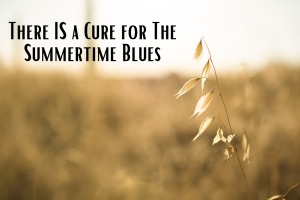
In our busy, sometimes frustrating world, it can be easy to focus on the negatives in life. We live in a culture influenced by social media, which may lead us to compare our lives to others. When life starts to feel like a competition, we can become upset about what we don’t have. However, instead of letting perceived failures affect our mood and self-esteem, we can practice gratitude.
Gratitude is the act of being thankful, showing appreciation and truly being kind. It can improve our mental wellbeing, strengthen our connection to others, and reduce selfishness.
Below are five tips for practicing gratitude every day.
Practice Loving-Kindness Meditation
Loving-Kindness meditation helps us feel more connected to, and appreciative of, ourselves and others. This meditation can be done as a guided practice (by following an instructional video or podcast), or individually. To practice alone:
- Find a quiet, comfortable place to sit. With eyes closed, take 10 deep breaths, and relax the body.
- Picture a loved one for whom loves comes easily, without complication.
- Focus on the warm feelings of love and happiness for the chosen loved one.
- Send loving-kindness and gratitude inward. For some of us, simply thinking about these feelings for ourselves may work. For others, speaking out loud may be better. We can say: may we be safe, may we be happy, may we be at peace.
- Eventually, we can send thoughts of loving-kindness to our friends and family, neighbors, enemies, and eventually the whole planet!
Be Mindful of Complaining
It’s normal to complain sometimes; life can be hard! However, when we focus too much on the negative, we can forget to appreciate the good things.
For example, being stuck in a long line at the grocery store is no fun. Yet, instead of thinking, “This stinks!” and getting angry, try focusing on being thankful for having access to food.
When difficult situations occur, being mindful of our thoughts and feelings can change our outlook for the better. It’s okay to acknowledge negative thoughts, just be sure to challenge them with positive ones.
Express Gratefulness to Others
When we genuinely express gratitude to people, it benefits everyone. It helps us feel happier and allows us to bond with others.
We can offer a simple “thank you” when someone contributes to our day in a nice way. We can also perform random acts of kindness, like helping a stranger carry their groceries or buying coffee for the person behind us in line.
If there is someone in our lives whose presence is meaningful, we can call them and tell them how important they are to us.
Be Careful with Comparisons
Envy is a normal emotion that all of us may feel at some point. Our social media culture makes it particularly easy to compare our lives to others.
We tend to compare people’s best moments (their “highlights”) to our worst ones. This can make us feel like everyone else has what we lack.
When this happens, it is helpful to remember the good things in our lives. By focusing on what we’re good at, and what we’re proud of, we build thankfulness for what we have.
Keep a Gratitude Journal
Keeping a gratitude journal can benefit us in many ways. Not only can it reduce stress, but it may help us realize what matters most to us.
This practice helps us become more self-aware by making it clear what we value. It aids us in understanding what we want in our lives, and what we can let go. Additionally, on tough days we can read through our journal to remind us of what we’re grateful for.
Keeping a gratitude journal doesn’t have to be time-consuming, either. The One-Minute Gratitude Journal provides a space to quickly jot down three to five things we are thankful for each day. This can be done in the morning, before bed, or anytime appreciation strikes!
Gratitude is a simple, free practice that provides many benefits. When we actively work to emphasize the positive things, we become more appreciative of ourselves, our loved ones, and our lives.



